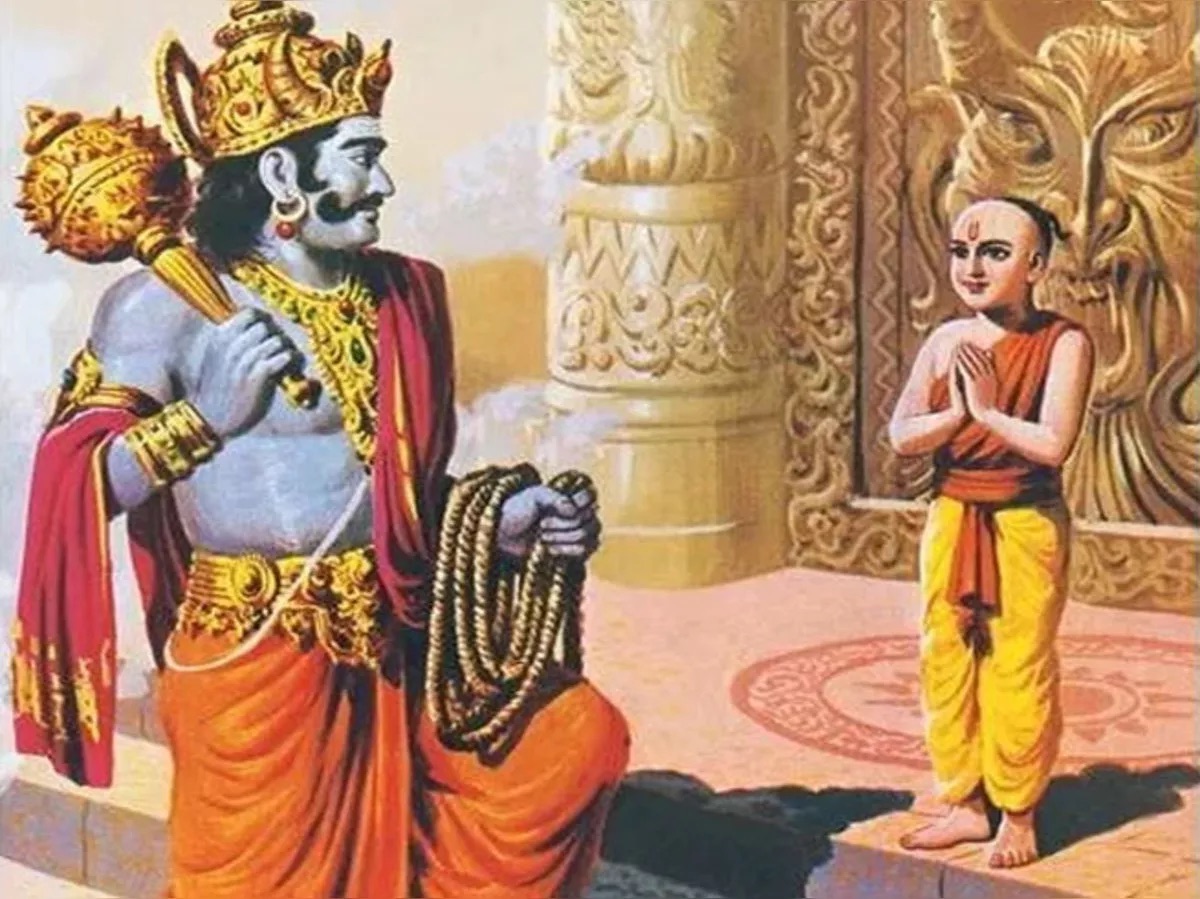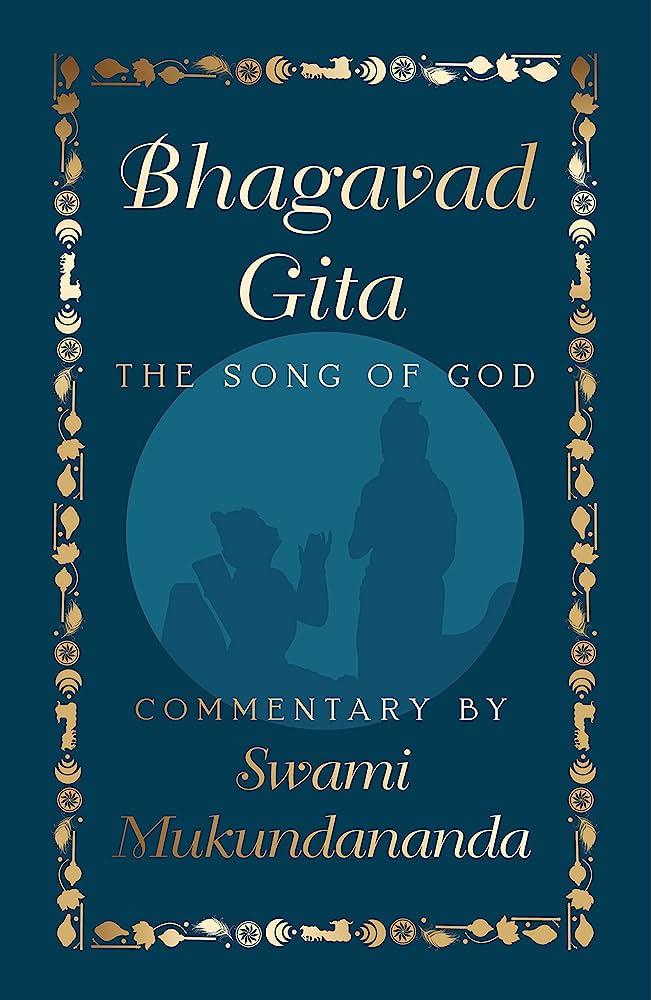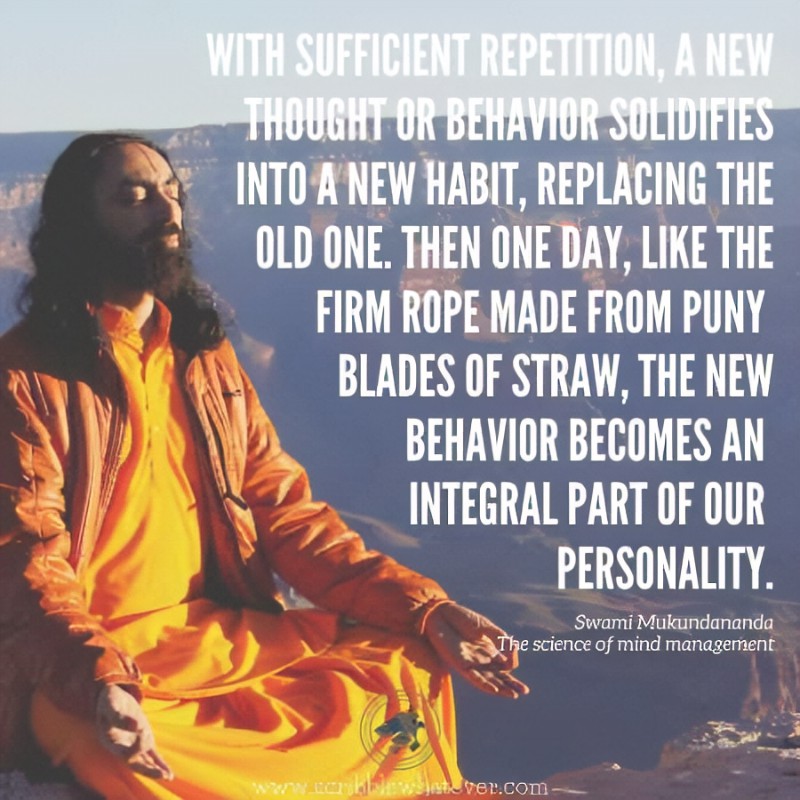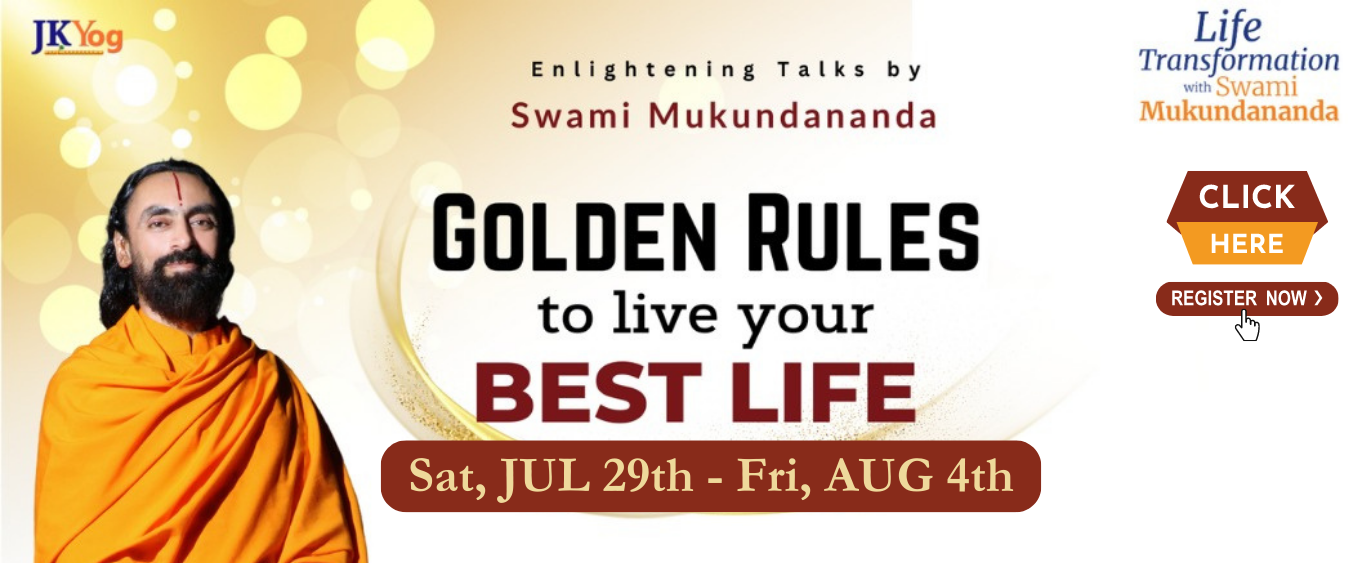
Welcome to the July 2023 issue!
 Quote
Quote
न हि ज्ञानेन सदृशं पवित्रमिह विद्यते |
तत्स्वयं योगसंसिद्ध: कालेनात्मनि विन्दति || 38||
na hi jñānena sadṛiśhaṁ pavitramiha vidyatet
tatsvayaṁ yogasansiddhaḥ kālenātmani vindati
“In this world, there is nothing as purifying as divine knowledge. One who has attained purity of mind through prolonged practice of Yog, receives such knowledge within the heart, in due course of time.”
 From the Editor's Desk
From the Editor's Desk"Knowledge is vital for resurrecting ourselves from the present position,” says Swami Mukundananda, while explaining how ignorance has led us to material consciousness, oblivious of our spiritual identity. However, mere accumulation of vast amounts of scriptural knowledge or engaging in the most esoteric philosophical debates and discussions do not make us any wiser.
Are we stuck in this predicament of mere accumulation of knowledge? No, we are not. We can find a way to wisdom by following the footsteps of the wise.
 Bhakti Ras
Bhakti RasKnowledge to Wisdom
Shree Krishna says: ज्ञानं ज्ञानवतामहम् (jñānaṁ jñānavatām aham) or “I am the wisdom that manifests in the wise.” Hence, the wise are situated on the platform of perfect spiritual knowledge and lead an enlightened and enriched life.
Spiritual knowledge has the immense potential to purify, elevate, liberate, and unite one with God. Therefore, it is supremely sublime and pristine. However, we need to be aware of the distinction between two kinds of knowledge.
Knowledge is of Two Kinds
- Theoretical Knowledge: jñān / shābdik jñān (ज्ञान / शाब्दिक ज्ञान)
- Wisdom or Realized knowledge: vijñān / anubhavātmak jñān (विज्ञान / अनुभवात्मक ज्ञान)
The knowledge that we learn or acquire employing the mind, senses, and intellect is theoretical knowledge or shābdik jñān. Contrarily, vijñān or anubhavātmak jñān is the wisdom we earn through spiritual practice. “Vijñān is a direct experiential realization; it should not be misunderstood for intellectual knowledge,” cautions Swamiji.
We can acquire theoretical knowledge by reading scriptures and/or hearing from the Guru. This theoretical information is good to have, but insufficient by itself. It is just like having all the recipes from a cookbook, but never actually stepping into the kitchen to cook a single dish. The theoretical cooking knowledge doesn’t satiate hunger. Similarly, one may acquire theoretical knowledge on the topics such as soul, Maya, God, karm, jñāna, bhakti, etc. from the Guru or scriptures, but by itself, this knowledge is not beneficial to fulfill the purpose of human life, which is God-realization.
It is only when we do sādhana or spiritual practice in accordance with the acquired theoretical knowledge, that we can attain wisdom. Hence, Sage Patañjali states:
श्रुतानुमानप्रज्ञाभ्यामन्यविषया विशेषार्थत्वाद् ।।
śhrutānumāna-prajñābhyām anya-viṣhayā viśheṣhārthatvāt (Yog Darśhan 1.49)
“The knowledge attained by realization from within through the practice of Yog is far superior to theoretical knowledge of the scriptures.”
Endeavoring to put even one gem of knowledge into practice with faith can create a paradigm shift in life. Nachiketa, for example, heard and believed in donating only useful objects to charity. He demonstrated it and thereby gained even more knowledge and wisdom from Yamadharmraj.

Nachiketa was the son of sage Vajashravas, who performed a sacrifice (yajña) that required giving away everything he possessed. Instead of fulfilling the vow sincerely, he was giving away objects that were of no use to him, such as old and barren cows.
Watching his father dishonoring his vow, Nachiketa approached him, and repeatedly enquired, “Father, to whom are you going to give me? For your sacrifice requires that everything should be given away.
Vexed at this question, the father replied, “Thee I give unto Death (Yama).
Nachiketa sincerely went to Yama, the god of death. Since Yama was not in Yamaloka then, Nachiketa waited for him for three days without food. Pleased by Nachiketa’s faith and devotion, Yama bestowed three boons on Nachiketa.
As one of the three boons, Nachiketa requested Yamaraj to disclose the knowledge about what happens when the soul departs the body. This revelation resulted in Kaṭhopaniṣad, a discussion of the nature of man, self, and liberation. Enlightened, Nachiketa returned to his father as a jivan-mukta (liberated while living). Such illumination and wisdom cannot be reaped via only reading the scriptures or cerebral study; it necessitates faith.
Seek Knowledge to Strengthen the Faith
Sage Narad, states: सा विद्या तन्मतिर्यया sā vidyā tan-matir yayā (Bhagavatam 4.29. 49) “The goal of true education is to awaken to God-consciousness.” In other words, True knowledge should result in love for God.
Scriptures are the manifestation of God’s knowledge. Reading scriptures or acquiring scriptural knowledge is good, but without progressive and consistent action, the knowledge is merely like a seed ripe with possibility. Besides, solely reading and rereading one scripture after the other sparks pride of knowledge (jñān abhimān.) This pride impedes our spiritual journey. It gets in the way of our relationship with God. It leads us to think that we are the body, and have a falsely inflated or overly high view of ourselves.
Instead, if we put the knowledge into practice, per the Guru’s instructions, it leads to true realization – that the Supreme Lord is the source of all that exists. This dispels our pride and instills faith in God. Knowledge of the Lord’s divine glories and opulence nurtures our love and enhances our devotional sentiments. Hence, seeking scriptural knowledge is good, but the purpose of it is to develop faith. Saint Kabir has summarized it well:
पढने की हद समझ है, समझन की हद ज्ञान |
ज्ञान की हद हरि नाम है, प्रेम नाम हद जान ॥
padane kī hada samajh hai, samajhan kī hada jñāna
jñāna kī hada hari nāma hai, prema nāma hada jān.
“The outcome of reading is understanding, which results in knowledge, and that knowledge leads to faith in God. Repeated remembrance of God peaks into divine love, which is the ultimate goal of the exercise.”
The edifice of bhakti rests on the pillar of faith. And faith is the culmination of true knowledge. Knowledge matures into wisdom, provided we internalize it through contemplation and put it to use in sadhana. Otherwise, we can become like hallow pundits. The essence of all scriptures is to love and serve God with all our hearts. Unless we render devotional service to Hari-Guru, we cannot possibly realize true knowledge. When one is equipped with wisdom or realized knowledge, one perceives everyone and everything in the light of their relationship with God. Such wisdom cleanses, elevates, and effectuates an auspicious and fulfilling life.
 Bal-Mukund: Playground for Vedic Wisdom
Bal-Mukund: Playground for Vedic Wisdom
Even a King is bereft of knowledge when there is no practical application. Read on to learn about the parable of the King and the would-be thief who became his Guru.
To Steal Or Not To Steal
 Once upon a time, there was a scholarly Pandit (priest) living in the kingdom of King Bhoj. As he grew older, he became poor. To reduce his suffering arising from poverty, he decided to steal from the King’s palace. He went there at night and hid behind the furniture as the courtiers were retiring for the day until he was alone. He moved to steal the treasures but when he went to pick them, he remembered that stealing gold, silver, and precious stones was one of the five deadly sins listed in the Garud Puran scripture. It would make him go to a type of hell to receive punishment after death. He decided not to commit this sin. Instead, he planned to safely exit from the palace by mingling in the crowd when it appeared next. Until then, he decided to hide under the king’s bed to avoid being seen.
Once upon a time, there was a scholarly Pandit (priest) living in the kingdom of King Bhoj. As he grew older, he became poor. To reduce his suffering arising from poverty, he decided to steal from the King’s palace. He went there at night and hid behind the furniture as the courtiers were retiring for the day until he was alone. He moved to steal the treasures but when he went to pick them, he remembered that stealing gold, silver, and precious stones was one of the five deadly sins listed in the Garud Puran scripture. It would make him go to a type of hell to receive punishment after death. He decided not to commit this sin. Instead, he planned to safely exit from the palace by mingling in the crowd when it appeared next. Until then, he decided to hide under the king’s bed to avoid being seen.
In the morning there was a great ceremony, consisting of dancing, playing instruments, and recitation of the Veda mantras, to wake up the king. As the King awoke, he thought about his opulence as he listened to the enchanting sounds. He began composing a verse in Sanskrit on his wealth and glory. He composed three lines but got stuck on the fourth line. The Pandit had woken up in the meantime and was wondering about the temporary things on which the king was rejoicing. When the king tried again to compose the fourth line, the Pandit could not resist adding the fourth line that stated that nothing with him after death.
The king was surprised to hear these words since he thought he was alone. He wondered whether these words were coming directly from God above in the sky. However, since the voice was coming from below, he requested his guards to check out. The Pandit decided to reveal himself before the guards arrived. He informed the king of the reason for his intent to steal and also explained how the knowledge from the scriptures streamed to his intellect preventing him from committing the theft. Despite the ill intent of theft, the king accepted the Pandit as his Guru (teacher) as he had now learned that there was no need to give importance to material things, which he would not carry forward upon death. This teaching helped the king to become detached from all the opulence. He rewarded the Pandit abundantly

Practical wisdom:
The Pandit decided not to steal when he remembered the knowledge of the scriptures.
- Merely listening or reading good knowledge is not enough. It is important to ensure that the knowledge becomes useful when needed. Repeatedly contemplate the knowledge gained. Such gems of wisdom can be life-transforming.
- The intellect has the ability to control the mind. Practice empowering the intellect with divine knowledge from saints, spiritual teachers, and divine scriptures.
 Youth Insights
Youth Insights
As youth, we often find ourselves lost in the maze of roles and responsibilities. Whether it's being a student, a friend, or a citizen, defining our purpose can be puzzling. Techniques like meditation and the Bhagavad Gita wisdom come to the rescue to solve the puzzle!
Cracking the Code of Wisdom: Unveiling the Timeless Secrets of Hindu Scriptures
In this fast-paced world, we are constantly bombarded with information. We are always eager to gain more knowledge through education, technology, and media. But, have you ever wondered what makes knowledge truly powerful? It is when it transforms into wisdom. The key to navigating life's challenges with a blend of discernment and compassion is having the right knowledge. The ancient Hindu scriptures are packed with profound teachings and timeless wisdom that can guide us on this incredible journey.
Embracing True Calling - The Bhagavad Gita Way!
This enchanting scripture emphasizes the significance of dharma, one interpretation of which is our our righteous duty. It is not just about knowing things and having skills; it is about aligning these talents with our true calling and working for the betterment of society. By integrating the true dharma into our lives, we can make conscious choices and bring positive change to the world around us.

Meditate and Pray - Unlocking Inner Superpowers!

Many youngsters think meditation and prayer are just for yogis and monks. Turns out, these practices hold incredible power in transforming our lives at every age. Meditation is not just sitting cross-legged and chanting Om; it is a journey to explore the depths of our consciousness. It is a rich tradition from time immemorial that helps us understand ourselves better, gain mental clarity, and build emotional resilience. Who wouldn't want that, right?
And what about prayer? It is not asking the universe and God for “stuff.” It is a way of expressing gratitude, humility, and surrender. It connects us with something greater than ourselves and strengthens our inner spirit. Applying meditation and prayer in our daily life will help us find moments of peace in the midst of chaos, make wiser decisions, and become more compassionate towards others. It is like unlocking an inner superhero! Try it!
The Journey from Knowledge to Wisdom For Youth
The journey from knowledge to wisdom is a lifelong adventure. Luckily, we all have the ultimate guide in the form of these ancient Hindu scriptures and Gurudev. Embrace your duties, understand the consequences of your actions, practice mindfulness, and spread compassion like confetti. Together, we can make the world a better place, drawing inspiration from these timeless teachings. The wisdom we gain will not just change our lives; it will shape the destiny of generations to come. Let's rock on the path to wisdom!
 Holistic Health Titbits
Holistic Health TitbitsOne way to put knowledge into practice is to focus on finding a health routine that we will follow. Before this, we must have the right knowledge about the importance of health in our overall spiritual path.
Where Does Knowledge Come From?
There are many sources of knowledge that we encounter in our life. When we are born, it is based on instinct. As we grow, we learn by imitating people in our environment. Later, knowledge is acquired through formal structures such as school and work. Knowledge can also be obtained by worldly experiences and the intentional pursuit of information over and above the basics required for everyday life. Scriptures, such as the Bhagavad Gita and the Vedas, have been given to us by God. Bhagavad Gita 18:58 says: "If you always remember Me, by My grace, you shall overcome all obstacles and difficulties. But if, due to pride, you do not listen to My advice, you will perish." This knowledge was passed down through generations by God-realized saints. These saints endeavor to simplify this knowledge and share it with the audiences of the time. Knowledge makes us aware of the options available to us to apply to various situations.
How Do We Move From Knowledge To Wisdom?
There is no shortage of knowledge available to us, through the grace of Swami Mukundananda. We have access to books, YouTube videos, programs, retreats, live discourses, and online and in-person classes on a variety of topics, including health. So how do we move from knowledge to wisdom? Through implementation, practice, and belief! Anyone can hear knowledge, and even repeat it back with clarity and understanding. Without these three, the efforts of the knowledge-sharer and the listener are a waste of time. If we go to the doctor due to an ailment, and she advises us to rest, change our habits, take medication, etc., she is sharing knowledge based on experience and expertise. If we fail to believe her and implement and practice these recommendations, the ailment continues. Often we know what we should do, and we know how to do it. Now, we must take responsibility and believe, implement, and practice.
- Start with a plan with inspiration from Swamiji’s teachings on exercise and healthy eating. Write it down. Make it a SMART goal: which means it is specific, measurable, achievable, relevant, and time-bound. If it is too hard, we will not stay committed to it.
- Try to improve by 1% per day by tracking our progress. Swamiji has told us numerous times that in order for something to become a habit we have to do it for 21 days. That is just a commitment of three weeks towards something that will benefit us, and if we improve 1% per day, we will have improved 21% by the end. This significant change will solidify our belief in the practice so we are motivated to continue.

 Reflection Questions for Discussion
Reflection Questions for Discussion
Bhakti Ras
Bal-Mukund
Youth Insights
Holistic Health Titbits
 Upcoming Events
Upcoming EventsYou don’t want to miss this festival!
Life Transformation Program (LTP) with Swami Mukundananda

The Life Transformation Program (LTP) with Swami Mukundananda started off with a bang! Just in the first three days, over 800 participants benefitted from various activities and events held at the Radha Krishna Temple of Dallas (Allen).
The program is still going on and we invite all the DFW residents to partake in the bliss of morning walk, Q&A with Swamiji, morning Satsang, the Meet-n-Greet, daily divine discourses in the evening, and healthy meals. Most of all, provides participants an opportunity for personal association with Swamiji.
Schedule:

Dinner prasad will be provided after the program daily at 9:00 PM
So far Swamiji discussed four Golden Rules for living our best life. Here are the Gems of Wisdom:
Golden Rule #1: Develop Good Beliefs
💎 Our beliefs determine our value system.
💎 Our beliefs also impact our health.
💎 Beliefs are also created based on hearsay.
💎 Create beliefs based on valuable knowledge of the scriptures.
Golden Rule #2: Harness the Power of Self-Talk
💎 The subconscious can be our worst enemy but can also be the best friend.
💎 Positive self-talk enables the subconscious mind to reframe adverse situations into positive ones.
Golden Rule #3: Handle Adversity to Your Advantage
💎 Adversity is a fact of life. How we handle them makes or breaks us.
💎 Failure is just one little nodal point. It often leads to Post traumatic growth.
💎 Know that adversity is a temporary situation.
💎 Keep an optimistic perspective to adversity or failure.
💎 Be solution oriented; it avoids negative thinking.
💎 Turn an adverse situation to your advantage. Trust laws of God.
Golden Rule #4: Cultivate the Attitude of Gratitude
💎Gratitude makes us joyous and kicks out negativity from the mind.
💎 Gratitude makes one healthier, happier, and more productive.
💎 Gratitude breaks the chain of negative thoughts.
💎 Learning to be grateful even in adverse situations, is the art of positive thinking.
We invite you to join us for the rest of this week.
Raksha Bandhan Festival on August 30, 2023
The Radha Krishna Temple of Dallas warmly invites you all to celebrate the Raksha Bandhan Festival in person to tie Rakhi to our eternal relative Shri Krishna on August 30th, 2023.
Raksha Bandhan is a popular Hindu festival observed on the full moon of the Hindu month of Shravan Maas or Shravan Purnima. It celebrates the bond between brothers and sisters. Raksha means protection and Bandhan means to tie. Thus Raksha Bandhan literally means the bond of protection. The festival is celebrated by sisters tying a talisman or amulet, or a rakhi (a bracelet) made of interwoven red and gold threads, around their brothers' wrists to celebrate their relationship. The auspicious festivities commence with the Samuhika Satyanarayan Puja and Katha, a vrath performed on the eve of every Purnima. The Katha narrates how Lord Narayan pledges to protect His devotees, during Kali Yuga.

This will be followed by the Rakhi celebration, where everyone will be blessed with the divine opportunity to tie Rakhi to Shree Krishna. Soul-stirring kirtans of Shree Maharajji followed by Aarthi, embellish the festivities.
Hurry! Save The Date and do not forget to register for the festivities.
Date: August 30, 2023
Stay tuned to details:https://radhakrishnatemple.net/






